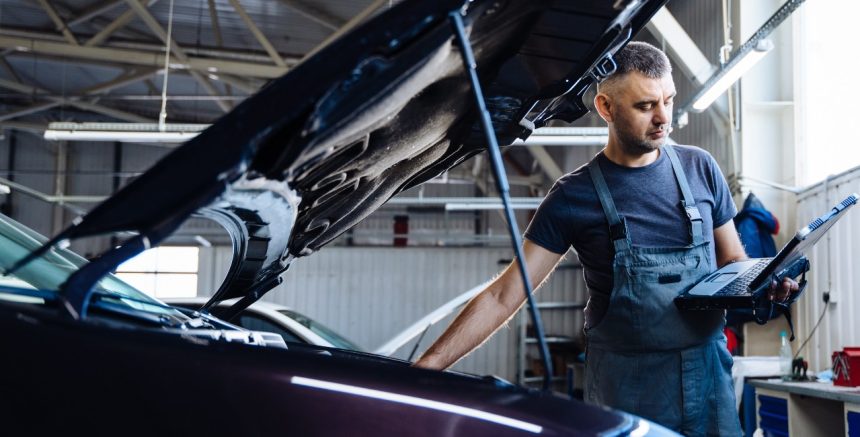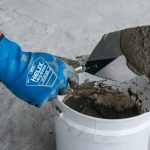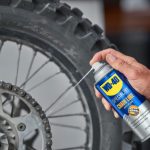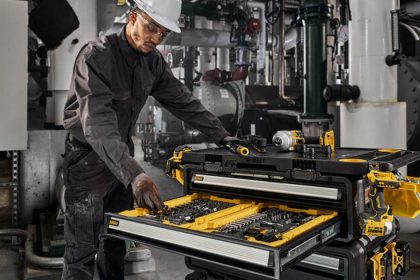As Australia transitions to more carbon-friendly alternatives in a race to reach its emission goals, it’s safe to predict that many of our trade industries are driving towards significant change.
One industry gearing up for a vastly different future is vehicle mechanics.
The shift to electric vehicles will be one of the most significant changes our society will face over the next few decades, with recently released data showing electric vehicles will account for 50 per cent of car sales worldwide by 2033 and almost 100 per cent by 2050.
This means many established mechanics will be forced to reroute their careers and update their skills to efficiently service EVs to stay on the tools.
For those new and entering the mechanic trade, it presents an unavoidable roadblock, but one that will open new lanes of opportunities for those eager to get a head start.
Queensland mechanic trainees in pole position for EV change
Queensland’s uptake of electric vehicles increased by 135 per cent over the last 12 months, with the TAFE Queensland introducing a new course in Automotive Electric Vehicle Technology to get a jump start on the eventual demand.
Current students at the Acacia Ridge and Townsville campuses are the first to study the course, learning how to decommission batteries and safely repair surrounding electrical parts.
Brisbane-based EV apprentice and TAFE Queensland student Daniel Catsoulis says the course will allow him to become one of the state’s first dual-qualified mechanics.
“It’s a new ball game for us; they have complete drive line differences,” he said.
“We will be able to get into these cars, service them and pull them apart to repair them.”
Despite some future mechanics starting in pole position for the incoming change, education groups are calling for the government to engineer an industry workforce strategy to address the changing job roles and skills required as petrol and diesel vehicles are retired.
Education council calls for government to speed up reskilling
Earlier this year, a parliamentary enquiry into the transition to electric vehicles was held with the Independent Tertiary Education Council Australia (ITECA) urging the government to push the accelerator on reskilling the auto sector’s 157,000-member workforce.
“As the industry shifts, new roles such as EV repair technicians, battery specialists, and software engineers for vehicle management systems are becoming increasingly important,” Troy Williams, ITECA Chief Executive, said.
“There is a pressing need for robust training programs to upskill and reskill the existing workforce to proficiently handle electric drivetrains, battery systems, and charging infrastructure.”
Established mechanics not changing lanes just yet
Owner of Gold-Coast-based mobile mechanics Drive-by Services, Reece King, told Build-it that he was looking forward to revving up his industry skills when the time was right, but he felt the conventional mechanics still had plenty of miles left in the tank to go.
So far, there’s nothing to stress about, but I think there will be in another 10 to 15 years.
“If it starts getting difficult in the next five years, I will probably start training on EVs, but it doesn’t make much sense yet.”
“I think they will still have a lot of people driving petrol and diesel for a while while they figure things out, but I am always keen to upskill.”

A National Electric Vehicle Strategy currently outlines a planned framework for the adoption of EVs nationwide. However, educators are concerned that it fails to address strategies for the skill development of our nation’s mechanics.
“ITECA is calling for a strategic approach that leverages the strengths of both independent RTOs and TAFE colleges, advocating for a collaborative effort to meet the emerging automotive sector’s need to upskill and reskill the workforce,” Mr Williams said.
“The reskilling and upskilling of Australia’s workforce to manage the transition to electric vehicles is a national challenge, and we need to look particularly at the issues for remote, rural, and regional Australia,” Mr Williams said.







